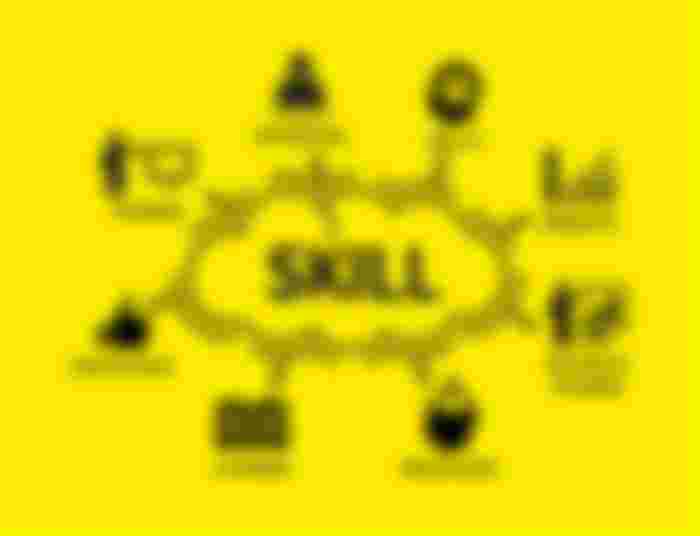What Am i Good at ?
Trying to figure out what you want to do with your life is hard enough on its own. It gets even trickier when you’re banging your head against a wall trying to figure out just what it is you’re good at.
Before you give yourself a concussion, take a deep breath and realize that this is a question that everyone asks themselves at some point in their lives. Everyone wants to be good at the things they’re passionate about, and many people just don’t even know what exactly that is.
Determining your strengths and what you’re naturally good at is a great way to figure out what you’re passionate about. You might even find that these strengths can direct you to a career path that will allow you to pursue those passions.

THINK ABOUT WHAT SKILLS HAVE HELPED YOU THRIVE

Think about your past work, volunteer, and education experiences. What tasks did you do well, and which ones did you enjoy the most? Think about situations that challenged you — which ones were you able to get through that made you feel the most accomplished or earned you recognition?
If there’s a common thread between any of these tasks or skills, you might consider pursuing them and finding an industry or position those skills are suited for.
For example, if you feel particularly energized by participating in fundraisers and you just happen to be a natural leader , perhaps you would have a fantastic career working as a fundraising coordinator.
CONSIDER WHICH ACTIVITIES OR SKILLS MAKE YOU FEEL EMPOWERED

Sometimes our strengths do exactly what they’re meant to do — they make us feel strong and help us succeed. Think about what tasks you do when you feel stressed or overwhelmed and you just want to feel like you’re in control again.
Try to take notice of the times when you feel invigorated or successful — those moments might be the product of you putting your natural talents to use.
Also, consider where your natural curiosities lie. If you find yourself trying to learn more about a topic for no reason outside of intrinsic motivation, that might be a good thread for discovering a new talent. At the very least, it may provide direction in what skills you want to learn and improve.
WHAT COMES TO YOU NATURALLY?

It’s easy to overlook our natural talents, especially if you think that everyone can do them or if you just shrug it off as something you’ve always been able to do — just because something comes naturally to you doesn’t mean it comes easy to others, or that your talents aren’t valuable.
When you naturally do something well, it’s easy to unintentionally ignore it. Keep your ears open for compliments that you usually deflect — they may be the key to finding out what your underlying superpowers are.
TAKE NOTE OF HOW YOU SPEND YOUR FREE TIME

This is where we tell you that your meticulous planning will actually benefit your future. Thinking about your hobbies and the activities you naturally find yourself doing is a great way to figure out your natural strengths and skills.
Over the course of a week, think about five things that you enjoy doing and think about why you like them. Write them down and take note of specific tasks and why they’re fulfilling for you.
For example, if you set aside time every week to write for an hour , and you have a blog that you regularly update with your creative writing and op-ed pieces, then perhaps your natural talents are your abilities to prioritize your time, tap into your creativity , and work autonomously.
WHAT WERE YOU GOOD AT AS A CHILD?

Think about activities and hobbies you enjoyed when you were younger that came to you easily – they may reveal an innate talent.
For example — did you enjoy writing one-act plays and performing them in front of your first-grade class? If so, then maybe you should pursue a career in playwriting, stage direction, or acting .
We don’t always nurture our natural talents, but that doesn’t mean they aren’t still there. Look back on what your teachers, parents, and mentors thought stood out when you were younger. You’ll have an easier time developing these qualities than most people.
ASK OTHERS WHAT THEY THINK YOU’RE GOOD AT

A great way to figure out your natural strengths is to ask others. Ask people who know you well who you trust and respect what they think you’re good at.
Talk to people who know you well, people you’ve worked with, and former supervisors or professors. Ask them about what they think your strengths are, when they’ve seen you thriving, which careers they think would fit your personality and natural talents, and ask them why.
It can be hard to step back and take an objective assessment of ourselves; an outside opinion might help you start looking at yourself a little differently.
Additionally, you can use online personality and career aptitude tests to learn where your strengths lie.
LOOK FOR PATTERNS

When asking others about what they think are your strong suits and taking note of what skills you use in your spare time, pay attention to any characteristics or strengths that are mentioned frequently by others or that you notice you spend a lot of time doing.
The skills and hobbies that come up the most frequently are probably your strongest areas. Some of these strengths may be related — if so, try to think of jobs in which these skills could work together.
For example, if a lot of your friends say that you have a keen eye for details and you notice that you spend a lot of time organizing things in your room, perhaps you could have a fulfilling career as an art curator.
KEEP AN OPEN MIND

Some of the feedback you hear from the people you ask about your strengths might surprise you, and that’s okay. Don’t dismiss aspects of your personality that you had never considered to be strengths before — these unexpected qualities could help you succeed in a job or industry that you’ve never even considered exploring.
WHY KNOWING YOUR STRENGTHS IS IMPORTANT

When you’re naturally good at something, there’s a higher chance you’ll enjoy doing it. While a successful career requires a good deal of perseverance, natural aptitude can make the road to the top much easier.
Of course, it also helps if you’re passionate about your field and your role. But when it’s easier to succeed on a daily basis, you’ll have an easier time staying motivated — hopefully, passion or at least the drive to improve upon your natural strengths carries you from there.
The things you’re good at may not be immediately apparent or relevant for a profession. But with a closer look, you’ll find that seemingly irrelevantskills and talents can be significant in developing as a professional.
WHAT YOU’RE GOOD AT VS. WHAT YOU’RE PASSIONATE ABOUT

In a perfect world, what we’re good at and what we’re passionate about would always align perfectly.
While a good amount of overlap typically exists between the two, it’s important to differentiate the meanings. Because you might enter a career field that you’re very passionate about, only to discover that your talents don’t really thrive there.
WHAT YOU’RE GOOD AT
Natural ability. Whether you like doing it or not, you’re naturally good at something. You’re either more efficient or more effective at performing certain tasks, handling situations, or applying knowledge. While you’ll struggle sometimes, you’ll generally improve at a faster pace than others.
Knowledge-based. Most knowledge is learned, but if you’re good at something, you’ll be able to educate your self without as much effort. If it’s something like math or science, you can probably understand more complex topics through deductive reasoning.
You’re recognized for it. If you’re applying your skills, you won’t be able to hide your natural talent. People will recognize, appreicate, and comment on things you’re good at without you bringing it up. Don’t feel bad about this; it’s not arrogance to accept praise and lean in to your strengths.
WHAT YOU’RE PASSIONATE ABOUT
Skill level is unimportant. Your passions aren’t necessarily things you’re proficient in. That’s why following your passion alone isn’t the best recipe for choosing a career path – you need to take your talents into consideration as well.
Interest-based. You may not have an easy time picking up on your passions, but your love of them will make it easier to succeed nonetheless. You’ll come up with creative, possibly inefficient, solutions to problems as they arise.
Intrinsically motivated. Many people are also intrinsically motivated by what they’re good at. With passions, though, intrinsic motivation is part of the definition. You do this thing whether you’re recognized for it or not. The enjoyment you get from performing a certain task is worth more than any external reward.
FINAL THOUGHTSIf you’re trying to figure out what you want to do for the rest of your life, figuring out what it is that you’re good at is a great place to start.
You might find that your hobbies are actually valuable strengths that you can use to start a career path, or you might learn that you have a talent you never even noticed before.











You know, I've always been curious about personality psychology, and this blog https://psyculator.com/blog/what-is-personality-psychology/ just gave me the perfect crash course! 🤯 The way it breaks down the definition and explains how our traits, behaviors, and emotions all fit into this grand puzzle of personality is super fascinating. It's like getting a peek behind the curtain of human nature. I feel like I'm starting to understand myself and others a bit better now!